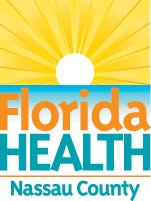It's a New Day in Public Health.
The Florida Department of Health works to protect, promote, and improve the health of all people in Florida through integrated state, county, and community efforts.
Community Matters
Florida Department of Health in Nassau County
- 904-875-6100
- chd45webmaster@flhealth.gov
-
Fax
904-428-5632 -
Mailing Address
1620 Nectarine Street
Fernandina Beach, FL 32034
Community Matters
Community plays a key role in creating support every step of the way, an inviting and warm atmosphere for those with Alzheimer’s and their caregivers. while also raising awareness and engagement throughout the places they work, worship, play, get an education and live. That may be easier than you think. Several types of community members and organizations may be involved with providing services and support to people with dementia. These include: Practitioners who serve on the front lines of federal, state, and local health, NPO and governmental agencies impacting environments, systems, and policies Service Clubs, Community advocates, and volunteers who function as bridges between individuals, communities, and organizations from different sectors First responders, such as emergency medical services, firefighters, and police officers Faith-based leaders Social workers and case managers, who provide advice, care consultation, information, and referrals Former caregivers Foundations and other Funding agencies |
DOH is committed to utilize our website as point of resource dissemination needed to connect individuals impacted by Cognitive Decline, Alzheimer’s with adequate information, people and services Please contact Barb Baptista, DOH Road Map Strategist, Community Engagement and Health Equity Liaison at 904-753- 1258 or Barbara.Baptista@flhealth.gov.
The efforts of Nassau Brain Healthy Brain Road Map are guided by a Task Force Advisory Council of Agency representatives and Individual stakeholders and based on the National Alzheimer’s Association and the Center of Disease Control’s 2018-2023 Public Health Road map: |
(Running time: 10 minutes 47 seconds) |
How Are You Feeling Right Now? Coping Strategies for Caregivers external icon
|
Social Isolation and Loneliness Among Older Adults and What You Can Do to Help |
Baby Boomers Who Are Caregivers Report Being in Poor Health |
Health Risks of Loneliness and Social Isolation in Older Adults |
What About the Caregivers? |
The Importance of Physical Activity for Older Adults |
Alzheimer’s Disease—Genes Do Not Equal Destiny |
Younger People Need to Talk to Their Doctor About Memory Loss |
State and Local Public Health Partnerships to Address Dementia, The 2018-2023 Road Map |
Protecting the Health of Family Caregivers |
Caregiving in Indian Country |
Smoking and Older Adults |
Oral Health and Older Adults |
Advancing Cognitive Well-Being Through the Healthy Brain Initiative Road Map |
Healthy Brain Initiative Interim Progress Report |
Emergency Preparedness Concerns for Older Adults |
Health Literacy in Older Adults |




Connect with DOH